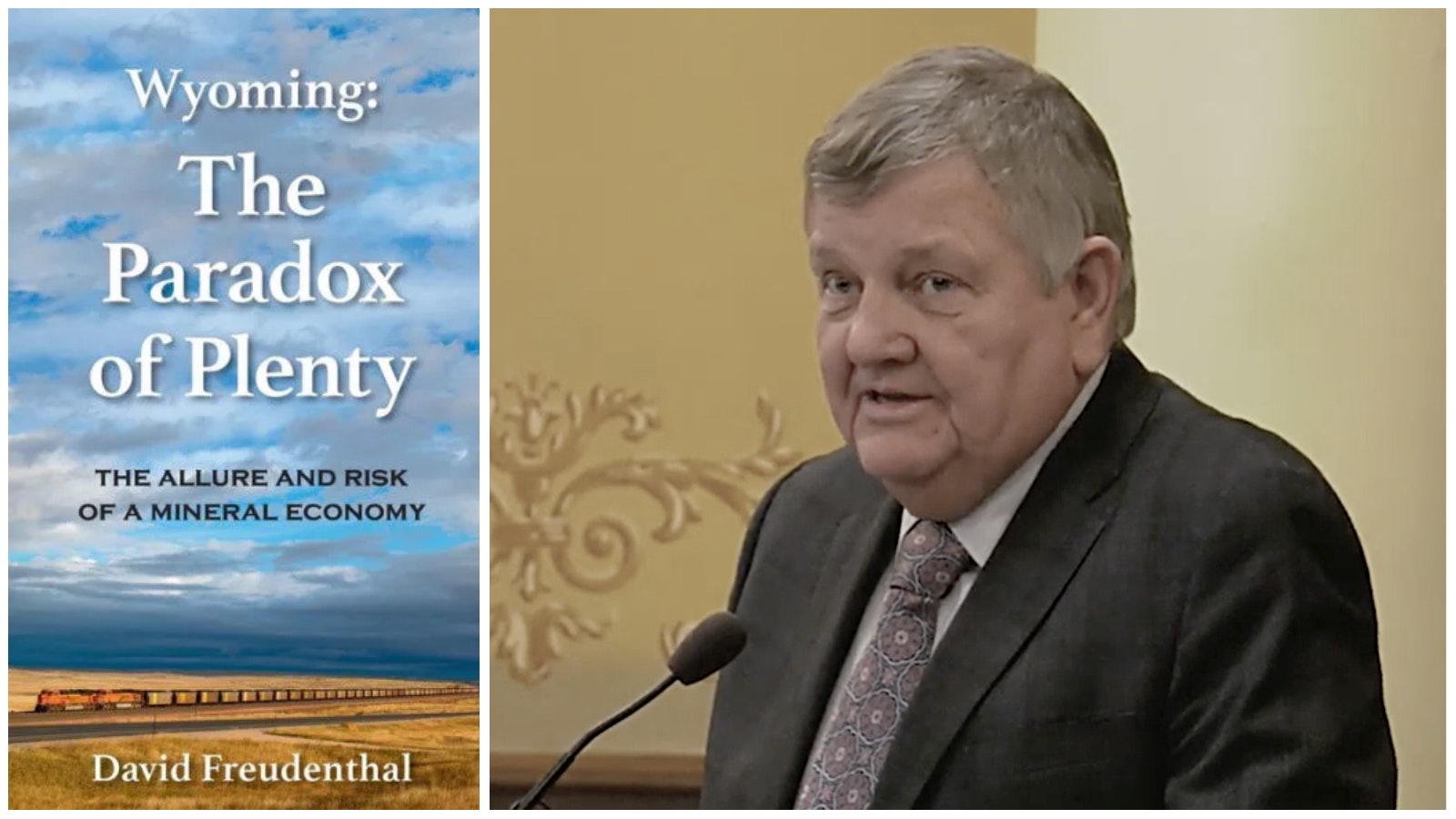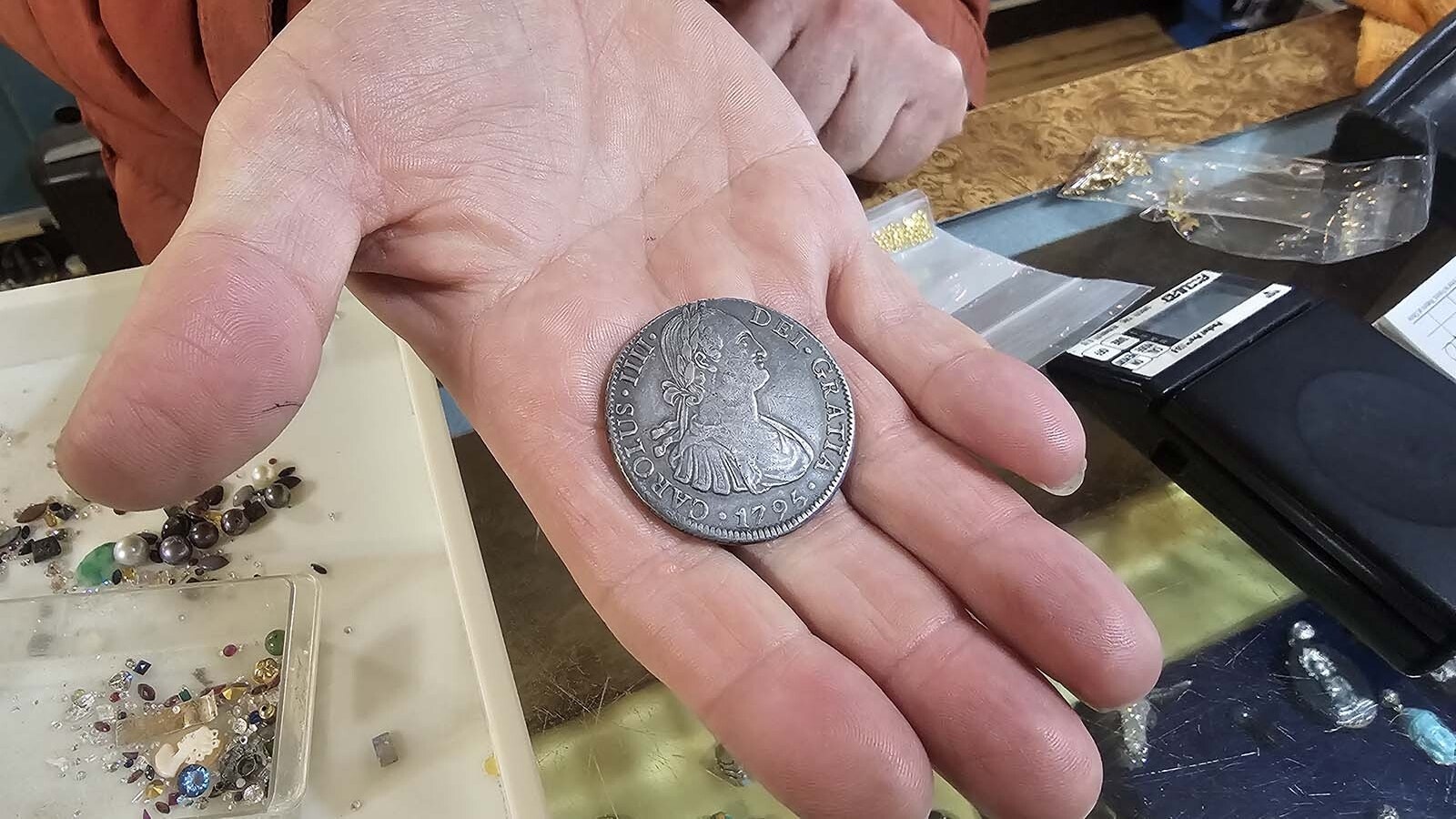Dave Freudenthal, a Democrat who served as governor of Wyoming from 2003-2011, released his new book last week, “The Paradox of Plenty.”
The book explores Wyoming’s close-knit dependence on mineral revenues and how this relationship has affected its economy through the years.
“For people interested in how we got to where we are, I think I’ve tracked that,” Freudenthal told Cowboy State Daily.
Paradox Of Plenty
The inspiration behind the book’s title, the Paradox of Plenty concept, is an economic philosophy asserting countries with an abundance of natural resources have less economic growth.
Freudenthal said there are similarities between the structure of Wyoming’s economy and what is seen in many third-world countries.
“Not all the development characteristics within the Paradox of Plenty fit Wyoming’s history, but many do,” Freudenthal writes.
Freudenthal explores the economic decisions that were made in early years of Wyoming statehood up to a critical period from 1966-1986 he believes laid the foundation for the state’s current economy.
Not Cowboys
Wyoming’s economy is a challenging one, where dependence on minerals and a low tax rate don’t always make for a symbiotic relationship, he writes.
During the mid-1980s, while the state suffered a severe recession brought on by an energy bust cycle, Freudenthal said a few “lackluster” attempts were made to diversify the state’s economy.
In 1987, the state adjusted its Constitution to ensure dedication to its tax structure into the future.
“Rather than conform to the Constitution, they changed the Constitution to sanction the tax relief to all non-mineral producers,” Freudenthal said.
In short, Freudenthal believes Wyoming’s aspirational mantra of the “Cowboy Ethic,” defined by ruggedly independent, self-made, carry-your-own weight Westerners, is somewhat a farce.
Carrying Our Own Weight?
He mentions how, according to the Wyoming Taxpayers Association, Cowboy State residents only pay about 20% of the actual costs of the public services they receives.
According to data research firm Smartasset, no state receives a larger federal share (56%) of its overall revenue than Wyoming.
“The point is, the sort of cowboy image of Westerners carrying their own weight is a fiction,” Freudenthal said. “People say, ‘Turn all that federal money back’ when they are driving down highways built with that money.”
Wyoming has received $8 billion in COVID-19 pandemic relief, amounting to a $14,569 total per person share. The state’s gross domestic product in 2022 was $36 billion.
Freudenthal is aware his arguments won’t sit well with some Wyomingites.
“If they don’t like it, they can write their own book,” he said.
New Author
Freudenthal said he was inspired to write “Paradox,” his first book, when asked by a friend how Wyoming came into its current predicament of high dependance on mineral revenues.
To his surprise, the former governor said he was disproven about his original theory that the situation originated with the 1969 passage of the state severance tax.
“It wasn’t addressed in 1969, it goes way back in the 1900s,” Freudenthal said.
His self-published book, which Freudenthal is not advertising and considers a “vanity project,” was mostly written during the height of the pandemic.
“There was not a lot to do,” he said.
Former Govs. Endorse It
For his research, the former governor tapped Wyoming historian Phil Roberts and decades worth of newspaper stories.
Former Govs. Mike Sullivan and Matt Mead have endorsed the book.
“It will be very helpful to all of Wyoming’s elected leaders and to any seeking to be elected,” Mead says on the back cover of the book. “‘Paradox of Plenty’ provides an excellent history of Wyoming’s ‘plenty’ and it is a call to all Wyoming citizens to examine our tax policy for the benefit of all.”
With the state in a strong financial position entering the upcoming legislative session, flush with higher-than-projected revenues from a strong energy year and pandemic-related federal allocations, lawmakers will be in a good position to make important fiscal decisions for the future.
Perhaps a few will draw inspiration from Freudenthal’s book.
Invest In Future
In recent years, the state has drawn far more retirees than younger residents moving into the state. Freudenthal would like to see more emphasis put on building jobs and houses to cater to future generations.
“We’re not doing a lot of investing to build the economy for future residents,” he said. “We are a much better place to retain Wyoming rather than build Wyoming. If you want to raise a family, it’s probably not the best place to do it.”
Purchasing the Book
Freudenthal’s book is not available on Amazon but it should be in some local Wyoming bookstores, publishers say.
To purchase online, the book can be ordered here.





